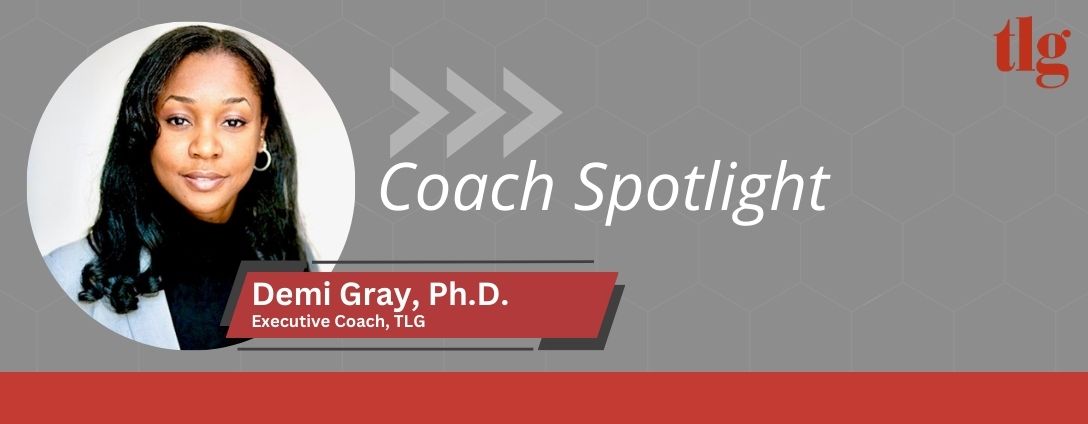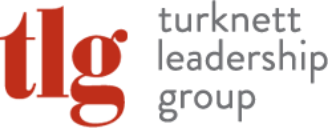
By Jonathan Palombo
Marketing ManagerMeet Dr. Demi Gray. Demi is an Executive Coach who is passionate about helping her clients see their path to success. She is also the Chief People & Culture Officer at OMS360. As a human resources expert, Demi specializes in employee engagement and motivation and has a keen understanding of human behavior that helps her to effectively affirm and advocate for her clients and the employees she serves. She is also a published author. Read on to learn more about Demi in this edition of our Coach Spotlight.
Q: How has motivating and engaging employees in organizations translated into how you approach coaching?
I believe motivation and engagement are key values. Not only is it important that I embody them as an individual and a professional, but also in the way that I cultivate key perceptions and feelings about the people I coach, the teams I lead, and the outcomes. So, I think for me, because it’s genuine and innate, I lead that way. From a coaching perspective, I utilize modalities that bring those elements out of my clients.
Q: Tell us about your book, “The X Factor”. Why did you write it, and what do you hope the reader takes away?
When I wrote my book, it was during the pandemic. So, Covid-19 was the phenomenon, and, at the time, I started to understand how it impacted team members motivationally. From an engagement standpoint, it was a period in which team members were either furloughed or laid off. There was a lot of uncertainty. And even though most organizations intended to maintain the integrity of the workforce in some way, that information didn’t land on the employees in any formal way.
It’s important for leaders and individuals who influence team members to ensure they maintain key elements around keeping their team members motivated, engaged, and committed. A lot of the book is also based on my experience at the time. I bring together my academic research and my experience to create a product that leaders, supervisors, or anyone who influences a team member can use as a guide to keep them engaged and motivated.
Q: As a woman in leadership, what kind of challenges do you face? How have you overcome them?
This is a huge question – female leaders face so many challenges professionally as we’re competing with our male counterparts. Additionally, females are trying to make space for themselves in a leadership capacity. So, I think for the most part, certain women leaders have this nurturing way of leading individuals or engaging in this kind of 360-leadership model. When I lead, I try to make sure that I am fully understood and that my intentions are understood when I am putting initiatives in place for team members. Sometimes, that could be helping employees feel cultivated from an engagement perspective, or perhaps putting programs in place that create a greater workplace or to be an employer of choice.
In some capacity, a lot of these ideas typically are thought of as overachieving, or an organization may not necessarily be ready for them. So, I am not just fighting for the employee body, but also my professional love language of helping build out the workforce and creating a happier work environment.
Q: What does human-centric leadership mean to you, and how can this style of leadership influence culture?
Just being humanistic. That’s what that means to me – being a person. I lead and communicate by the golden rule, treat others as you want to be treated. Being in a position where you can reciprocate, and not necessarily reciprocating bad behaviors or bad touchpoints, but again, reinforcing, “This is how I’d like to be managed or led,” or “This is how I’d like to be communicated to as a peer within an organization.” So similarly, this would be the case for me when I’m leading, communicating, and engaging with others.
Being humanistic is treating everyone on the same level. I don’t necessarily treat anyone differently just because they are male versus female or if they work in a different division than I do, or if they may be a lower-level team member. I feel like from a humanistic perspective, we’re all people. At the end of the day, we all have emotions, feelings, lives, and personal situations that we’re dealing with outside and inside of the workplace. Leading in a human-centric place is just being grounded and treating people respectfully.
Q: What do you enjoy most about coaching and what are you looking for in your clients as they work with you?
I love coaching individuals who have a genuine interest in doing better and investing in themselves. Many people are looking to accelerate and level themselves up because they’ve already created that path internally – they just need someone to assist them with seeing how their path is taking them in the right direction. Coaching is fulfilling because there are so many opportunities to help an individual not only see their success through their lens but from another lens. So, for myself, when I’m coaching team members, I feel like there’s such a significant responsibility because you can essentially either make or disable a situation for a client.
When it comes to coaching, it’s about understanding exactly what the client is looking for and what their trajectory for success is. Then, affirming and validating that and helping them understand that they have the potential to do it. So, in those discoveries and discussions, it’s extremely fulfilling and meaningful when you see that your client is finally realizing that they are who they think they can be. Once they start going down that path, it just warms my heart. It pulls on all the chords to see their success and their resulting happiness. There are no words when they come back to you and say, “Oh my gosh, thank you.” And those words are so meaningful to me. There’s nothing better than that.
Q: How does your extensive experience in human resources benefit your coaching practice?
I’d say maybe if I answer from an academic perspective, it’s been the study of Human Resources. So, I started in the healthcare industry thinking that I was going to be a medical doctor at the very beginning of my career. I knew I wanted to help individuals in some way, but I quickly realized that the medical field was not for me. That’s when I learned that I was a germophobe, even before “germaphobe” was a thing. So, from there, I realized that my path was either going to be in psychology or human resources. From that perspective, I believe all my study has focused on human behavior and how individuals react to certain situations and understand the environment. Nature versus nurture. And those elements have influenced me not only as a coach but as a leader. So, I feel like from the perspective of my career as an HR practitioner, it translates well into coaching because of the study, the research, and just understanding human behavior altogether.
Q: What led you to join Turknett Leadership Group? What do you hope to get from this partnership?
I hope to gain the ability to help others and influence them positively. From a coaching perspective, moving individuals from point A to their point B, C, or Z, whatever that is, and Turknett provides the conduit to do that. They have the body already in place. TLG President & CEO, Tino Mantella, is phenomenal. When I first met him, I thought he was a great individual, obviously coupled with all the other individuals within the Turknett community. I think that for me, it blends in perfectly with what I love to do: coaching individuals in addition to cultivating all the other elements which I care significantly about, and that’s helping others see their path to success.

